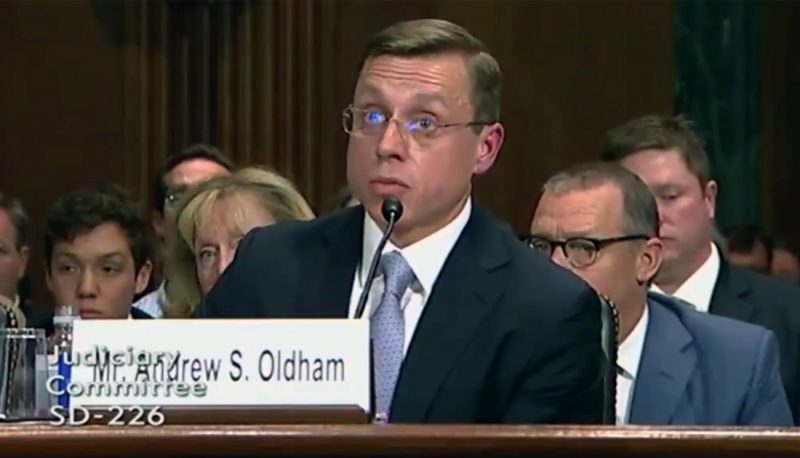In June 2019, Trump Fifth Circuit judge Andrew Oldham cast the deciding vote in U.S. v. Ricks to reject Robert Ricks’ challenge to actions he claimed substantially interfered with his ability to defend himself against drug and gun charges. In her response, the dissenting judge explained his concerns that the government had improperly threatened to bring federal charges against a key witness if she testified for Ricks and that the lower court had refused to grant Ricks’ lawyer additional time to investigate “debilitating eye ailments” of a key eyewitness against him that the government did not disclose until shortly before trial.
New Orleans police officers arrested Robert Ricks and his girlfriend Mandi Malbrone for drug and gun charges in connection with items found in a dresser in her parents’ home, where Ricks and Malbrone were living. She pleaded guilty to state charges and Ricks was prosecuted for federal offenses. Ricks contended that the items belonged to her, as she admitted to police officers, but that the government threatened federal prosecution against her if she testified to that in court. The government countered by granting her immunity on most federal charges, and the district court rejected Ricks’ complaints.
Shortly before trial, the government disclosed a significant eye ailment of a key eyewitness in the case, but the court refused to grant Ricks more time to investigate. Ricks was convicted and appealed to the Fifth Circuit.
In an unsigned opinion, a 2-1 majority including Oldham rejected the appeal. Although they agreed that the type of threats made against Malbrone could constitute substantial interference with Rick’s defense in violation of the Sixth Amendment, they believed that the immunity grant overcame any problem. They believed Ricks had not shown prejudice from the failure to allow more time to investigate concerning the eyewitness’ eye ailment since there was other evidence and the witness testified that the ailment arose later.
Judge James Graves strongly dissented. The problem with the immunity argument, he explained, was the major exception in the immunity grant – concerning possible charges of perjury for false testimony – that were “the very threats” made to her by the government on several occasions. She had submitted an affidavit concerning the effects of the threats on her willingness to testify, and Graves concluded it was clear that the government has “substantially interfered” with Ricks’ ability to present a defense and, at the very least, the case should be sent back to the district court for further review.
Judge Graves was also concerned about the refusal to allow more time to investigate the eyewitness’ recently disclosed eye ailments. She was the “only eyewitness” to any drug transactions involving Ricks, Graves explained, and her testimony was “crucial” despite the majority’s efforts to minimize it. But as a result of Oldham’s vote, none of these serious concerns made any difference in Ricks’ case.

